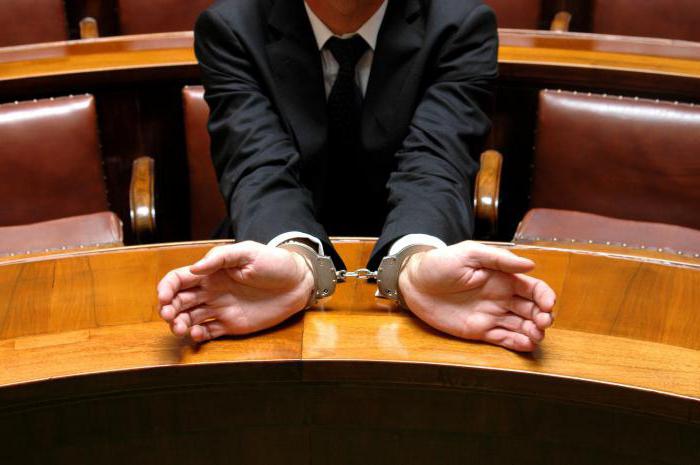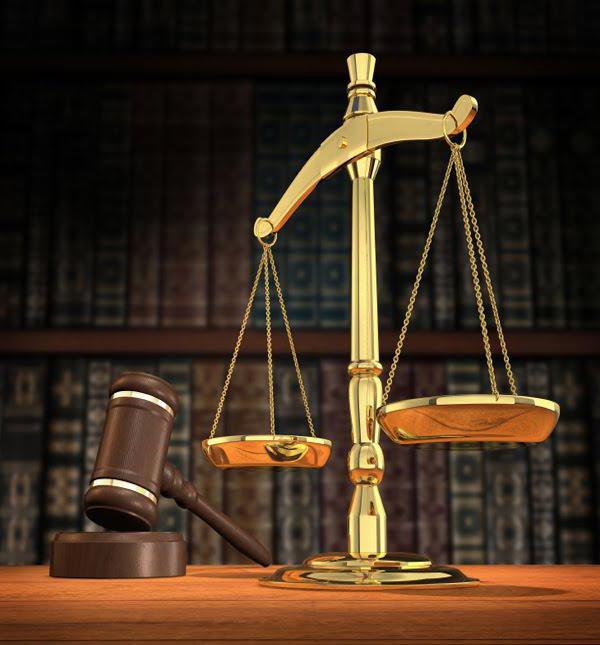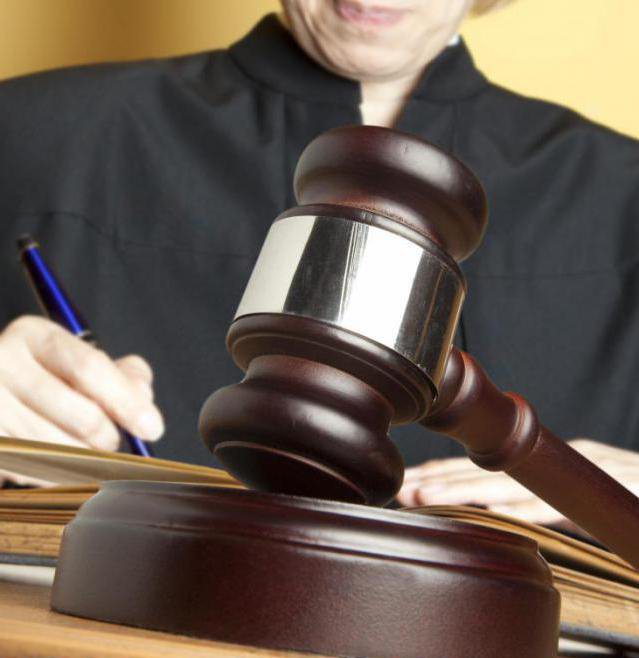A citizen who refuses to execute a court decision will have to bear responsibility for this. But what if a representative of the government commits such actions? It is these issues that are covered in article 315 of the Criminal Code of the Russian Federation.
Essence of the question
For any crime committed, the perpetrator must certainly be punished. This is in line with the basic definition of justice, which states that each act must have a certain retribution. This is exactly what the court does to those who violate the basic norms of society. He makes his decision after a close examination of all the circumstances of the case. Therefore, a sentence is a well-deserved punishment for a misconduct. The court decision can be challenged, but if this did not happen, then it is binding. True, there are some citizens who disagree with this. Ignoring the court’s decision, they commit unlawful acts, which are considered by Article 315 of the Criminal Code of the Russian Federation.

Having carefully studied its contents, we can conclude that these are not just ordinary citizens who do not want to be responsible for their actions. Everything is much more serious here. Article 315 of the Criminal Code refers to representatives of the authorities. This can be officials, state or municipal employees, as well as employees of commercial or other organizations. Using their position, they ignore the legal decision, not thinking that they commit a new crime with their actions.
Details of misconduct
Any sentence imposed by a court must be executed within the indicated time frame. This is strictly monitored by the relevant services. In practice, they have to deal with different situations. For example, a citizen who once committed an unlawful act was fined by a court decision. In this case, the relevant papers are sent to the place of work of the violator. But the leader instructs his subordinates not to take any action in this direction. As a result, the citizen manages to avoid punishment. But after some time, by the efforts of the bailiff service, this situation pops up, which gives them a reason to conduct an appropriate check. During the inquiry, the person who in this case was the initiator of the concealment of documents is determined. The leader, who forced subordinates to violate their duties, will have to appear before the law. And the punishment will be determined by article 315 of the Criminal Code of the Russian Federation. In accordance with the size of the guilt, the court will decide exactly how it will be.
The punishment of the guilty
Hiding certain facts, the official contrasts himself with the law. This is completely unacceptable. Such actions must be strictly suppressed. Perhaps, therefore, for the failure to execute sentences, decisions or other judicial acts, the person who committed such an act is subjected to severe punishment.
For obstruction of justice, he may be assigned:
- a fine in the amount of 200,000 rubles or in the amount of wages or other income for a period of up to eighteen months;
- deprivation of the right to engage in specific activities or work in a certain position for five years;
- compulsory work for 480 hours;
- half year arrest;
- forced labor or imprisonment for two years.
The choice of punishment depends on how severe the act was. In addition, all objective and subjective circumstances and reasons that prompted the offender to commit his misconduct are taken into account. Deprivation of liberty is often used by the court. It is believed that forced isolation for such violators is the only thing that can force them to change their attitude to this problem.
Features of the act
The main emphasis in this article is on the malignancy of the act committed. That is how the actions of violators are literally characterized by the law. Article 315 of the Criminal Code of the Russian Federation with comments provides clarification on this issue. Why are the actions of negligent government officials recognized as malicious? The answer in this case suggests itself.

Failure to comply with a court decision on time diminishes its credibility in the eyes of citizens. This makes people think that they are also allowed to behave in this way. Since those who represent power can afford such arbitrariness, it means that such actions are permissible for someone. If one person breaks the rules, then why should the rest follow them? It is impossible to leave such an offense without punishment. This may entail a wave of such violations. In addition, it must be understood that the subjective side of such an action is direct intent. That is, a citizen understands in advance that he is breaking the law, and does it, no matter what. Such neglect is already fundamentally vicious and should be punished with all severity.
Special cases
Sometimes there are cases when the actions prescribed by the court in relation to a natural person are not performed. People mistakenly believe that it is he who needs to be attracted under this article. In this situation, it should be remembered that the responsibility for the execution of the punishment rests with specific employees who should monitor this. First of all, this is the bailiff service. It is they who are obliged to record the non-enforcement of the court verdict.

Inaction on their part in this matter will be a statement of guilt. Indeed, the duties of bailiffs initially include bringing to the performer information about the assigned punishment. If this does not happen, then there are suspicions of direct intent or aiding the offender. Any of these reasons is not able to explain the possibility of unlawful acts. The bailiff's guilt in this situation is not in doubt. As a servant of the law, he is obliged in every way to contribute to the punishment of violators, and not to prevent this.